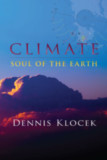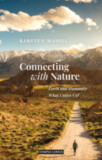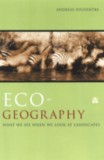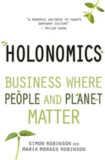Earthwards
Transformative Ecological Education
- Publisher
Hawthorn Press - ISBN 9781912480913
- Language English
- Pages 256 pp.
- Size 6" x 9.25"
“Earthwards is both a direction and a statement of intent. It signifies a shift—the desire to move from where we are toward a new position that is healthy for ourselves and the planet. It acknowledges that we can start in the direction we intend from wherever we are and move forward step by step. Earthwards also emphasizes a new role for humans who choose to care for Earth as both stewards to and allies with the rest of the living biome.” (from the introduction)
Katharine Burke was asked by a student, “Miss, do you think we are going extinct?” She recognized a growing malaise in response to the climate crisis and asked herself how we, as teachers, can help these capable yet vulnerable young people develop the ecological literacy and personal resilience they need. She provoked her students to think and act ecologically. She then invited other teachers to participate in action research for developing nature connectedness with the students. This book shares those transformative stories, concepts, and methods of connecting with nature for life.
Earthwards shifts the lens from using nature as a throwaway object to understanding nature as a living organism. This crucial paradigm shift comes through peak experiences of nature. The educator’s job is both to create the conditions for such transformative ecological experiences and then to bring out the students’ observations, feelings, thoughts, and questions.
Educators can use innovative action research to engage with students in a variety of settings—classrooms, clubs, volunteer groups, outdoors, gardens, forest experiences, camping, and hiking. Sharing these learning stories helps to build the culture of a real eco-school.
Each chapter includes stories of practical learning, from primary through secondary school; ecological principles, a reflection section for educators, a “curriculum connections” section to bring the principles into practice, and suggestions for multiple age groups. Helpful resources, a comprehensive bibliography, index and sharing website offer further help to educators.
“This incredible book adeptly explains the power and practice of transformative ecological education for teachers and students.”
— Meryl Batchelder, PhD, Science lead teacher, Corbridge Middle School, Northumberland, UK, and National Coordinator, Ministry of Eco Education
C O N T E N T S:
Introduction
The issue of malaise in schools, and the crisis of ecological identity; burning questions; developing ecological awareness through peak experiences in nature and transformative ecological awareness; the educators’ role in creating conditions where this can happen; starting where we are; how to use this book
Part One: Getting Started: Creating Practice Grounds
Chapter 1: “Generation Not Much Longer”
Malaise among young people; student burn-out; the educators’ role; talk about it; not doom, not hope; transformative ecological awareness
Chapter 2: “Transforming a Unit on Resources”
Focus on appreciation; encounter and re-cognition; children’s inborn nature connectedness and insight; a shift in perception: recognition; shifting curriculum toward ecological awareness
Chapter 3: “Circles of Self-Organization”
Teachers self-organization; start where you are; facilitating innovative practice grounds; defining the projects: biophilia, ecocentrism and systems thinking; emergent properties of change
Part Two: Practice Grounds in the Primary Years
Chapter 4: Grade 1, “The Enticement of Tomatoes”
A ground to table garden. knowing through the senses; allowing for exploration; biophilia: loving living things; working with resolve: “It needs to be done.”
Chapter 5: Grades 3 to 6, “Meeting Worms”
Knowing through doing; meeting the other and relationship in nature; biophilia through empathy; ecocentrism: allies in Earth regeneration; multi age engagement; working through school clubs
Chapter 6: Grades 4, 5, “Sitting with Nature Awareness”
Knowing through stillness, experience, and empathy; developing biophilia through observation and connection. Working within school schedules
Chapter 7: Grades 4, 5, 6, “Converging Cycles of Awe”
Knowing through experience, knowledge and reflection/connection. Interconnectedness and systems thinking. Working within and modifying the curriculum
Chapter 8: Grade 6, “Out in the Woods”
Knowing through experience, sensing, doing, and being in nature; ecocentrism: interdependence with nature and natural systems; sensual and emotional experiences in nature; working with the curriculum and taking learning outdoors
Part Three: Practice Grounds in the Secondary Years
Chapter 9: The Middle Years, “Green Squad”
Knowing through experiencing; service learning; empathy and biophilia; multi age interactions; the history of a small school working through service projects
Chapter 10: Year 11 Language, “Satire for Shifting Paradigms”
knowing through systems, language and film; changing paradigms through satire and drama; allowing for students’ feelings; working through the Language curriculum
Chapter 11: Year 11 Geography, “Deep Time”
Knowing through deep time and systems thinking; coming to understand an ecological self; imagination and senses in nature; a rock walk; working through the geography curriculum
Chapter 12: Year 11 Social Studies, “Oral Imagination and Systems Games”
Understanding systems thinking for social change; Imagination and cultural transformation; creating space for student voices and emergent understanding in the classroom; knowing through embodiment practices; working through the Social Studies curriculum
Chapter 13: Year 12, “A Contagion of Gratitude”
Indigenous and deep ecology perspectives on knowing; student insights into who we are and what we are worth; reciprocity, gratitude and the honorable harvest; practical engagement; working through the Environmental Studies curriculum
Part Four: Going Forward.
Chapter 14: “Earthward”
Learning from nature; Is it too little too late? becoming human; tipping points; The Freedom of NO; resilience in community; developing identity and culture through story; life as gift
Chapter 15: “The Role of Educators in Ecological Schools”
Teachers becoming ecologically aware; assessing how ecologically literate we are; a new ethics, courage, and imagination; an example of changing culture through education; a school director’s reflection; a new world
Epilogue: “Loss and Promise”
Continued challenges with current mindsets and actions; patience, resolve and commitment toward aspirations
Resources : Index, Bibliography (website: earthwards.mn.co/feed), community site
Katharine Burke
Katharine Burke is an educator, teacher trainer, workshop leader, primary, secondary and college level teacher who holds a MEd in Nature, Ecology, and Sustainability. She is a Regenerative Design Practitioner and a Permaculture farmer. She teaches Nature Connectedness sessions for Rudolf Steiner University College, Oslo, and guest lectured on the Environmental Humanities course. She founded the Small Earth Institute in 2017 for school ecological awareness and action, offering workshops for teachers and for the sustainable development of schools. She is newly retired from Skagerak Primary and Middle School, Sandefjord, Norway, where she taught for 21 years. She hosts the website EARTHWARDS: earthwards.mn.co.








